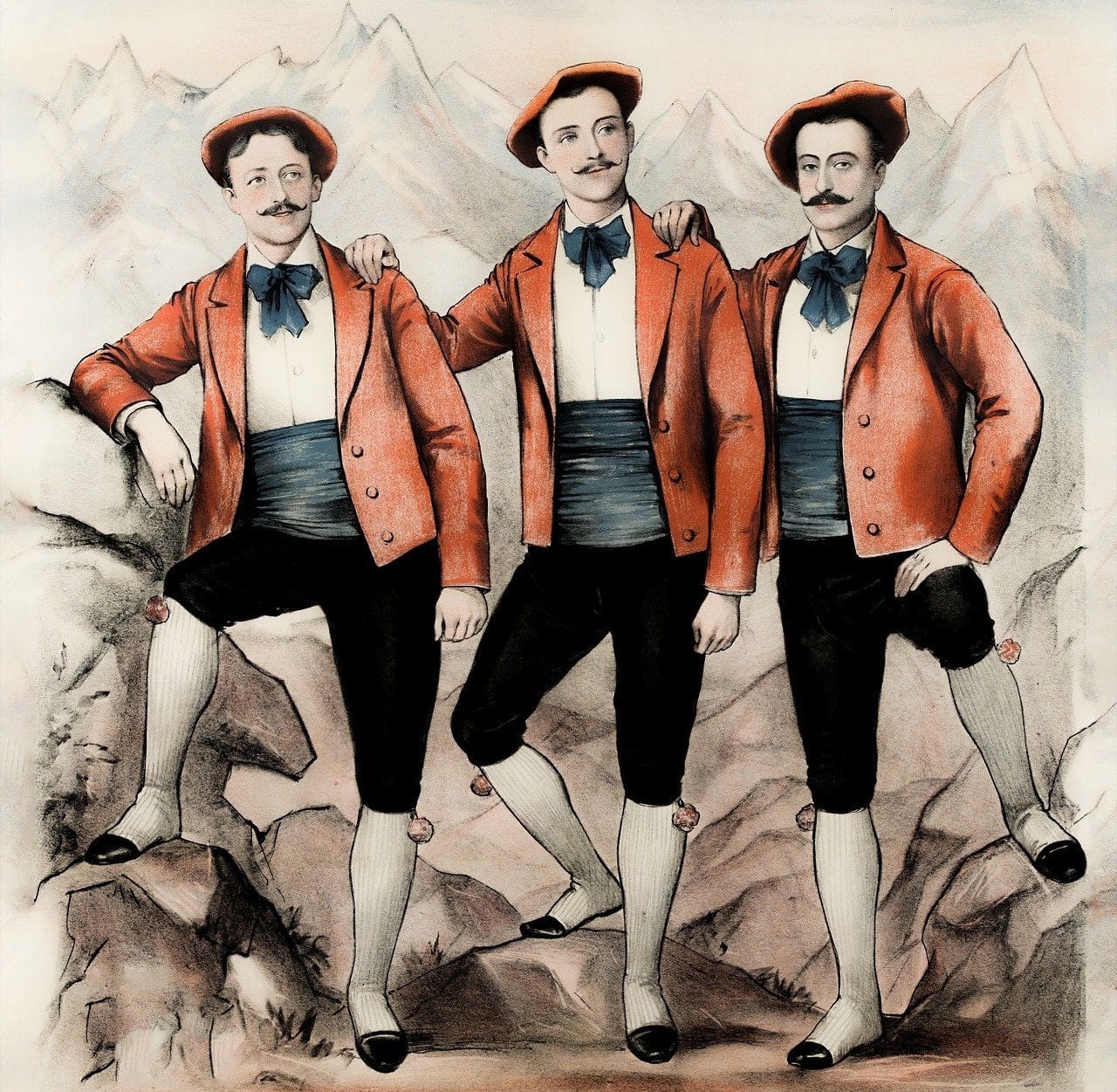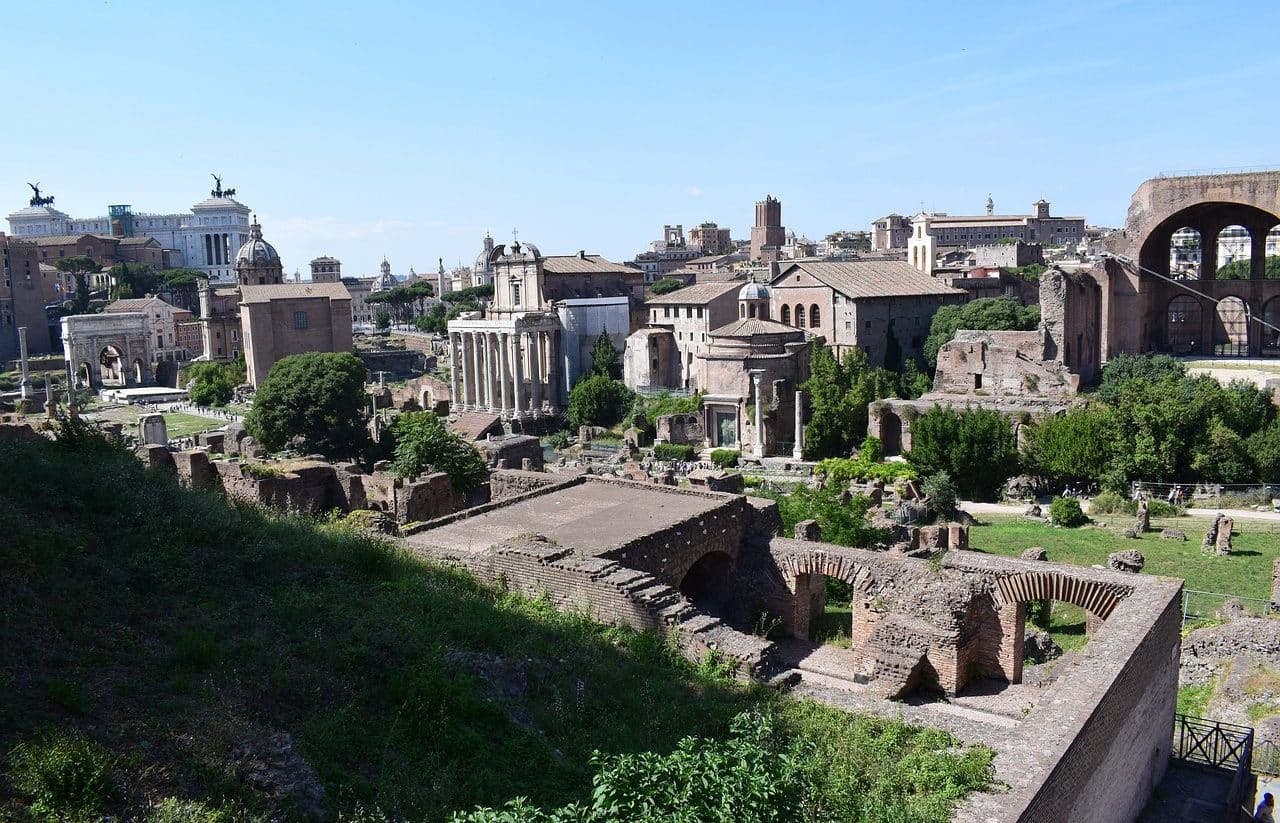
A triumvirate is an alliance or board of three people.
Triumvirate is a term that comes from the Latin language: triumvirātus . The first meaning mentioned in the dictionary of the Royal Spanish Academy ( RAE ) refers to the magistracy of three individuals that existed in Ancient Rome .
Regarding its etymology, we can say that this word derives from the Latin expression trium virorum , which can be translated as "of three men ." In this case, we are dealing with the Latin prefix tri- , associated with the Indo-European root trei- (three, also present in the words trivial and tribe ); the component vir (man, as in virtue and virile ) and the suffix -atus ( -ato , in our language, which denotes effect or result, as we can see in the term concordat ; it also serves to build collectives, and this is the function that it fulfills in triumvirate ).
The Roman triumvirates
The First Roman Triumvirate was that formed by Marcus Licinius Crassus , Gnaeus Pompey the Great and Gaius Julius Caesar between the years 60 and 53 BC . It should be noted that this alliance was not official. The Second Roman Triumvirate , on the other hand, is known as the one composed of Caesar Octavian , Marcus Aemilius Lepidus and Marcus Antonius from 43 to 38 BC .
When General Crassus and the leader Pompey were consuls, in the year 70 BC, they decided to abolish the aristocratic constitution drafted by Lucius Cornelius Sulla Felix , a Roman dictator belonging to the late Republican era and member of the optimates , an aristocratic faction. of the Republic . Pompey had become famous for having fought against pirates in the Mediterranean Sea and a group of rebels on the Asian continent.
Crassus , on the other hand, faced the slave insubordination under Spartacus (born in the southeastern region known as Thrace ) immortalized under the name Third Servile War and was especially interested in ending it once and for all, For which he counted on the income he received from the slave trade .
Both succeeded in their undertakings and returned full of pride to Rome , where Gaius Julius Caesar , who at that time did not have as much power , joined them and promised to fulfill the role of the reconciling party. This alliance remained secret until the Roman Senate blocked Julius Caesar 's Agrarian Law and the other two were forced to use their influence in public to get it passed.
After this event, the triumvirs (a term accepted by the RAE dictionary to designate each member of a triumvirate) managed to have Publius Clodius Pulcher become Tribune of the People , thus annulling the power of Marcus Tullius Cicero and Marcus Porcio. Cato in the Senate.

In the Roman Empire, a triumvirate was a magistracy of three individuals.
Other boards and alliances
Throughout history , a large number of boards and alliances composed of three participants were known as triumvirates. The particularity of this form of government is that there is no single figure that assumes or represents power (as in a presidential regime ); Nor do decisions fall to a single person (as in a monarchy ).
In Argentina , the body that governed the United Provinces of the Río de Plata between 1811 and 1812 is known as the First Triumvirate . Said government was led by Juan José Paso , Manuel de Sarratea and Feliciano Chiclana . Paso then left the board and was replaced by Juan Martín de Pueyrredón .
Currently Triumvirato is the name of a small town in the Province of Buenos Aires and of an avenue located in the City of Buenos Aires .
Uruguay also had a Triumvirate of Government . In this case, it was a temporary government board that ran the country for a few months between 1853 and 1854 . This triumvirate was made up of Fructuoso Rivera , Juan Antonio Lavalleja and Venancio Flores .
